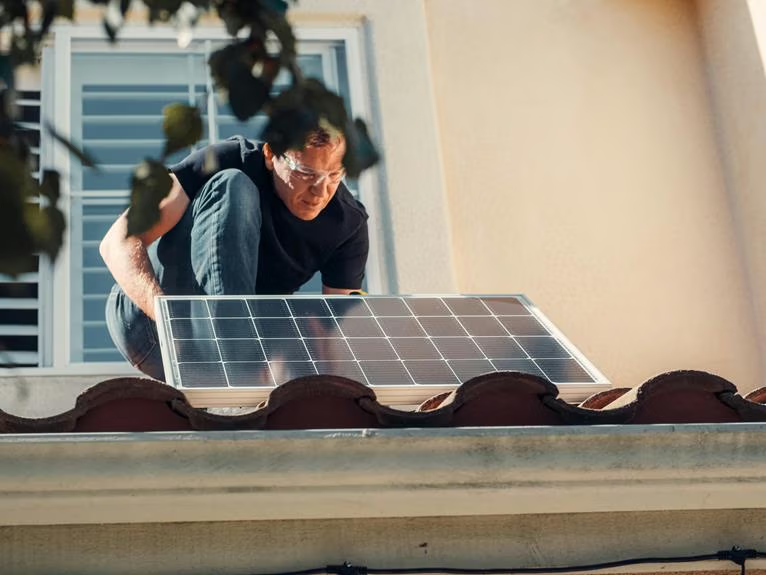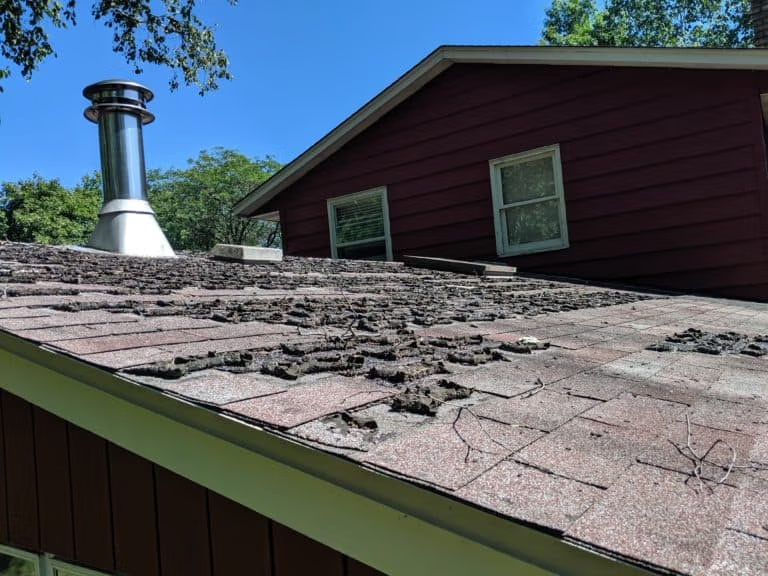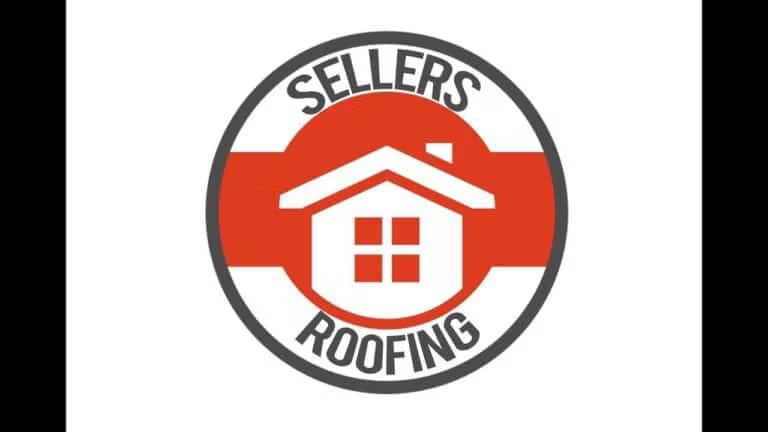
Can Hail Damage HVAC?
Can Hail Damage HVAC Systems? Absolutely. If a recent hailstorm in Minneapolis has left you concerned about your HVAC system, don’t wait! Call Sellers Roofing Company today for a free, no-obligation hail damage inspection before expensive repairs drain your wallet.
Hailstorms can severely impact industrial and commercial HVAC systems, causing dents, displacements, and reduced efficiency. Left unchecked, these issues can drive up energy bills and lead to costly breakdowns – and Minnesota’s unpredictable weather only increases the risks.
At Sellers Roofing Company, we’ve inspected and repaired over 500 hail-damaged homes and businesses across St. Paul, New Brighton, and Minneapolis. With over 20 years of trusted expertise, we guarantee:
- Free, same-day inspections to assess damage quickly.
- Expert repairs with industry-leading warranties for peace of mind.
- Solutions that restore efficiency and save you money long-term.
Don’t wait for damage to worsen –protect your HVAC system today!
Call Sellers Roofing Company to Schedule Your Free Inspection Now!
How Can Hail Damage HVAC Systems?
Hailstorms can wreak havoc on HVAC systems, leading to a range of issues that may affect performance, energy efficiency, and long-term reliability.
Here are the most common types of hail damage and why they matter:
- Dented Condenser Fins: Hail can bend or dent the delicate fins on your outdoor condenser unit, restricting airflow. Reduced airflow forces your system to work harder, increasing energy consumption and wear on components.
- Damage to Compressors or Refrigerant Lines: Hail strikes can cause cracks or leaks in refrigerant lines or damage compressors. These issues often lead to system failures and expensive repairs if left unaddressed.
- Displacement of Components: Severe impacts may displace critical components, causing uneven cooling or heating throughout your home or business. This can result in uncomfortable temperatures and inefficiency.
Why Address Minor Damage Immediately?
Small dents or cracks might seem insignificant but can quickly escalate into major repairs or a complete system replacement. Acting early saves money and ensures your HVAC system operates at peak efficiency.

Signs Your HVAC System May Have Hail Damage
After a hailstorm, your HVAC system might exhibit signs of damage that could compromise its efficiency and lifespan. Catching these issues early can prevent costly repairs or a full system replacement. You may notice visible damage in the metal like in the image above, or any of the following signs:
- Unusual Noises
If you hear clicking, grinding, or other odd sounds when the system is running, it could indicate internal damage caused by hail impact on critical components. - Reduced Cooling or Heating Performance
Is your system struggling to maintain consistent temperatures? Damaged condenser fins or refrigerant lines may be to blame. - Sudden Increases in Energy Bills
Hail damage can force your system to work harder to deliver the same performance, resulting in higher energy consumption and unexpected spikes in utility costs. - Visible Dents or Debris
Take a close look at your outdoor unit. Dents in the casing, displaced components, or debris trapped in the fins could indicate hail damage.
Don’t Risk Bigger Problems!
If you spot any of these signs, it’s essential to address the issue quickly to avoid costly repairs or complete system failure.
Act Now – Schedule Your Free Inspection with Sellers Roofing Company!
The HVAC Hail Damage Inspection Process
At Sellers Roofing Company, we take pride in our comprehensive and transparent hail damage inspections. Our step-by-step hail damage inspection process ensures your HVAC system is thoroughly assessed and that you have all the information needed to make an informed decision.
Here’s what to expect:
- Assessing Visible Damage: Our experts start by carefully examining your HVAC system for visible damage. This includes inspecting:
- Condenser Fins for dents or debris that may block airflow.
- Refrigerant Lines for leaks or cracks caused by hail impact.
- Structural Components for signs of displacement or damage that may affect performance.
- Testing for Efficiency and Performance Issues: We run diagnostic tests to identify any reduction in cooling or heating efficiency. These tests help pinpoint underlying issues that may not be immediately visible, such as internal damage to compressors or motors.
- Providing a Detailed Damage Report: Once the inspection is complete, we provide you with a comprehensive damage report.
- Repair Recommendations: We discuss your repair options in detail, ensuring you understand the steps involved. Our team provides honest advice and prioritizes cost-effective solutions to restore your HVAC system’s performance.
Schedule Your Free Inspection Today!
Don’t let hail damage compromise your comfort or increase energy costs. Call Sellers Roofing Company now to schedule your no-obligation HVAC hail damage inspection!

Hail Damage Prevention for HVAC Systems
Hail Damage Prevention for HVAC Systems
Preventing hail damage to your HVAC system is key to avoiding costly repairs and maintaining efficient performance. Proactive measures can protect your investment and ensure your HVAC unit is ready to withstand severe weather.
Tips for Preventing Hail Damage:
Install Protective Covers or Cages:
Durable covers or cages shield outdoor units from direct hail impact, reducing the risk of dents, punctures, and displacements.
Choose Hail-Resistant Materials:
Consider upgrading your HVAC components to hail-resistant materials that can better withstand severe weather conditions.
Place HVAC units in less-exposed areas, such as under awnings or behind barriers, to minimize direct hail impact.
Schedule Regular Maintenance and Inspections:
Routine inspections help identify vulnerabilities in your system and address small issues before they become major problems.
Monitor local weather forecasts and take steps to secure your property before a storm, such as covering exposed units with temporary shields.
By implementing these preventive measures, you can extend the lifespan of your HVAC system and reduce the risk of unexpected repairs after hailstorms.
Final Thoughts: Can Hail Damage HVAC Systems?
We hope this has answered your question, “Can hail damage HVAC systems?” Just remember, hailstorms can seriously impact your HVAC system, leading to costly repairs and reduced efficiency if left unaddressed. Protect your investment by acting quickly and ensuring your system operates at its best.
Schedule Your Free HVAC Inspection With Sellers Roofing Company Today!
FAQ’s
10 FAQs for Hail Damage to HVAC Systems
Can Hail Damage HVAC Systems?
Yes, hail can dent, puncture, or displace HVAC components, affecting efficiency, performance, and overall lifespan.
What Are Common Signs of Hail Damage to HVAC Units?
Look for bent or punctured fins, leaks, unusual noises, reduced cooling or heating efficiency, and increased energy bills.
How Do I Know if My HVAC System Has Hail Damage?
A professional inspection is the best way to identify visible and hidden damage caused by hail.
Can Hail Damage Be Repaired, or Do I Need a Replacement?
Many hail-related issues can be repaired, but extensive damage may require component replacement. A professional assessment can determine the best course of action.
Does Insurance Cover Hail Damage to HVAC Systems?
Most property insurance policies cover hail damage. Be sure to check your policy and document all damage for your claim.
How Soon Should I Address Hail Damage to My HVAC Unit?
Immediately. Delaying repairs can lead to more extensive damage, higher energy costs, and potential system failure.
Can Hail Damage Affect My Energy Bills?
Yes, compromised HVAC systems often work harder to maintain indoor temperatures, leading to higher energy consumption.
What Preventative Measures Can I Take to Protect My HVAC System from Hail?
Install protective covers or cages, schedule regular maintenance, and consider hail-resistant materials for outdoor units.
Can I Inspect My HVAC Unit for Hail Damage Myself?
While you can look for obvious signs like dents and leaks, a professional inspection is recommended to identify less-visible damage.
Why Should I Choose Sellers Roofing Company for Hail Damage Repairs?
With over 20 years of experience, Sellers Roofing Company offers free inspections, expert repairs, and industry-leading warranties to ensure your HVAC system is restored efficiently and reliably.






